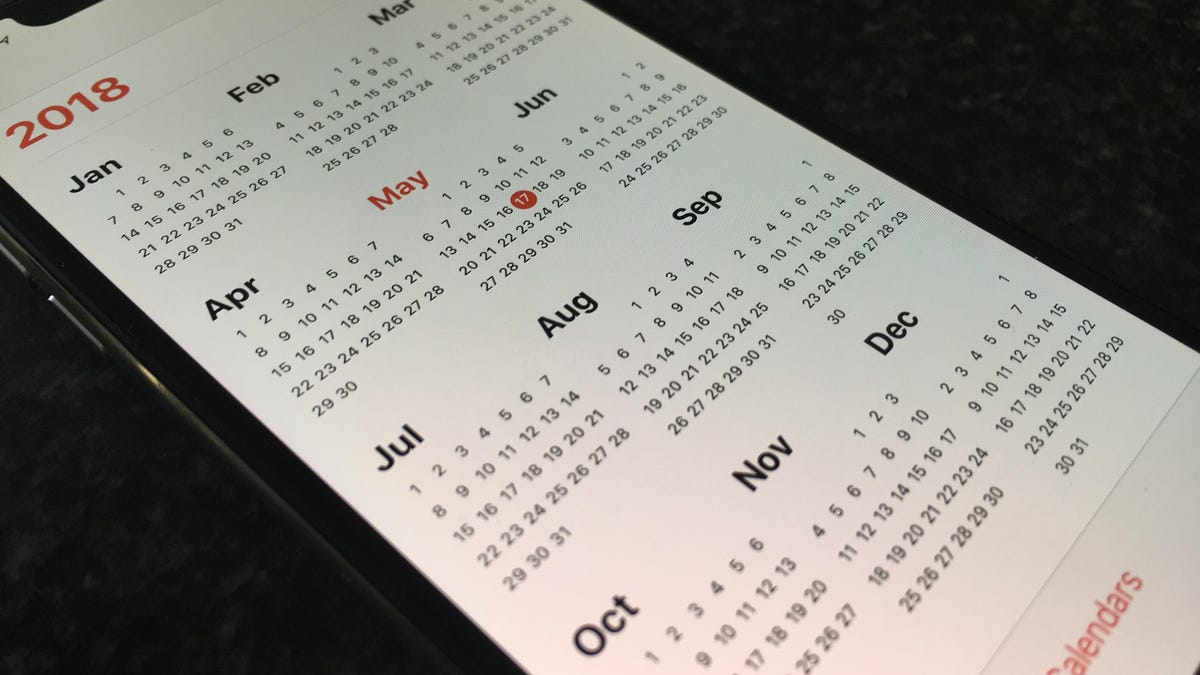Forget leap day, there's a serious plan to replace it with an extra week
Saturday is a rare date: Feb. 29. A pair of academics think the month deserves another day and we all should get an extra week every few years.

Is it finally time to make February great again?
If Johns Hopkins University applied economist Steve Hanke had his way, I would be writing this on March 1 rather than Feb 28. Not because he prefers I procrastinate, but rather he'd like to see the whole world adopt a new calendar that does away with the quadrennial February oddity that is leap day.
For several years, Hanke and his colleague Richard Conn Henry have been pitching an alternative to the Gregorian calendar that we've been using for the past few centuries since Pope Gregory XIII first introduced it in 1582.
The so-called Hanke-Henry Permanent Calendar offers an alternative way for dealing with the fact that the Earth's orbit around the sun doesn't take exactly 365 days. One year is actually 365 days and about five hours and 49 minutes. So to prevent holidays and entire months from drifting into different seasons over the decades and centuries, the Gregorian approach adds a day in February every four years (with the exception of years divisible by 100 but not divisible by 400 -- meaning the year 2100 will not be a leap year.)
Hanke suggests we throw all that out in favor of a system in which every third month (so, March, June, September and December) has 31 days and the others all have 30. This gives us 364 days each year, no leap days. Instead, we get an entire extra week every five to six years.
"Leap years are unnecessary -- they only cause logistical headaches," Hanke wrote on Twitter Sunday. "The best kind of calendar is not one that is terribly accurate, but rather, one that is the most practical for the modern person," he tweeted Tuesday.
It's hard to say how a bonus week around New Year's every now and then would play out for the modern person, but something tells me it would be welcomed by the travel industry, especially if the proposed name of simply "Extra" or "Xtr" were to be adopted for the leap week. I can just imagine the vacation packages on offer for your "extra" week.
Adding a full week rather than just a day to the calendar every few years might seem to be a more erratic plan at first, but under the Hanke-Henry model, Jan. 1 is always on a Monday and all other dates would also be on the same day of the week due to the fact that 364 days is divisible by seven. The Gregorian calendar currently subjects us to holidays and anniversaries drifting through the week over the years.
The Henry-Hanke Permanent Calendar
So bad news for those of you with Tuesday birthdays, I guess.
Hanke also argues that making quarters symmetrical makes more sense.
"The Gregorian calendar is a business inconvenience, as its quarters of unequal length cause earnings to fluctuate and stocks to be more volatile. With consistent 91-day quarters every year, my Hanke-Henry Permanent Calendar would eliminate this problem," he said.
At a glance, having a permanent calendar that's the same year to year makes sense, and February has arguably been getting short shrift for far too long.
But what about those extra weeks every few years? How does that even work? Unless companies are going to report earnings for a special seven-day period, it seems most logical that we just shut everything down for those days and hit the beach.
And as if all this weren't enough, the duo also propose doing away with both daylight savings time and time zones in favor of Universal Time (essentially the UK's time zone) being used worldwide, everywhere.
It's a big ask, and despite several years of pushing their calendar, there will still be an awkward 29th and final day to this February.
But Hanke and Henry are optimistic that President Donald Trump might be persuaded to sign an executive order enacting their new calendar as the law of the land. As Henry told The Washington Post, Trump could name the calendar after himself, in the tradition of Pope Gregory.
"If I could have half an hour with him in the Oval Office, we would be adopting it this year," he told the paper. "There's no question about it."

